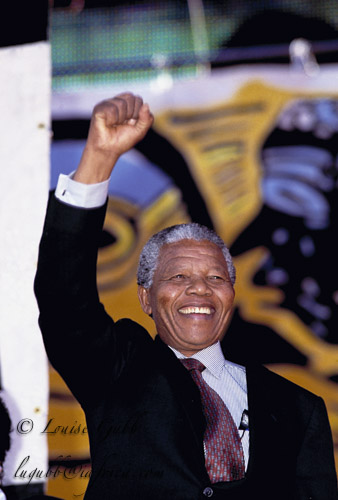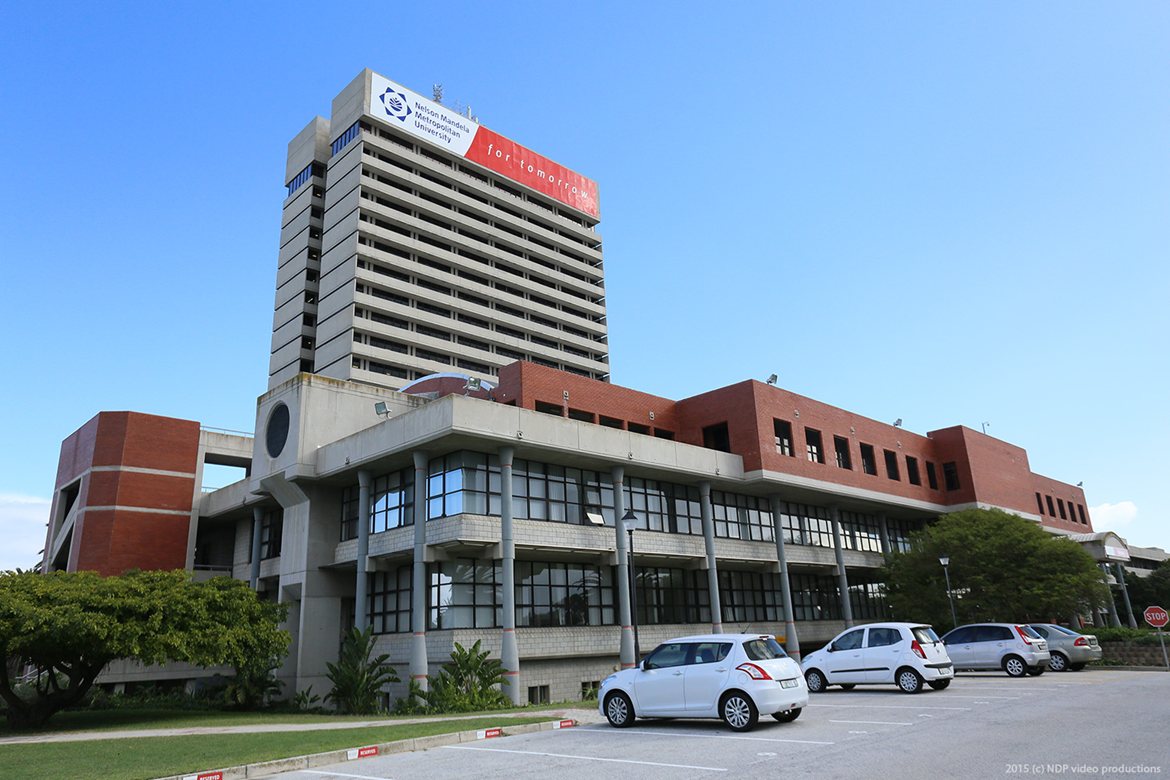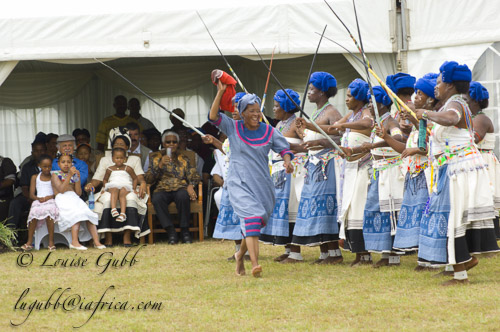Nelson Mandela University
“If there is one appeal I could make, it is that young people must take it upon themselves to ensure that they receive the highest education possible so that they can represent us well in future as future leaders.”
Nelson Mandela
 In mid-2017 Nelson Mandela Metropolitan University will become Nelson Mandela University: the only university in the world to carry the name of Nelson Rolihlahla Mandela.
In mid-2017 Nelson Mandela Metropolitan University will become Nelson Mandela University: the only university in the world to carry the name of Nelson Rolihlahla Mandela.
With this name we will be honouring Nelson Mandela by leading our University into a new era of powerful innovation and change.
It is an era where our South African identity combines global self-assuredness with locally actualised intellectual approaches and practices applied to economies, environments, lifestyles, cultures and traditions.
It is an era of respect and sharing with the aim of advancing the needs, lives and aspirations of all our people. We assume the responsibility of being able to stand up and say what our University is doing to improve society and to change the world for the better, which Nelson Mandela dedicated his life to doing.
“For to be free is not merely to cast off one's chains, but to live in a way that respects and enhances the freedom of others.”
We are honoured that the naming of our University has the full support of Mandela’s eldest grandson, Mandla Mandela, the head of the Mvezo Traditional Council and the custodian of the family.
Unique privilege
It is our unique privilege as a University to pay tribute to Nelson Mandela, a man who became the world’s moral compass and one of the greatest leaders we have ever known.
Who we are and what we are becoming as an innovative 21st century institution of higher learning is our way of taking responsibility for the Mandela legacy and ensuring that it is reflected in the way that we teach, learn, do research, engage with our communities, and work and live as students, staff, alumni and our partners.
Being at Nelson Mandela University is about being part of the unfolding future of South Africa and Africa.
This is a time to work together towards renewal, recurriculation, decolonisation and the case for change; a time to understand that #FeesMustFall is not only about fees but about a multitude of struggles that make the daily challenges for many of our staff and students, seem insurmountable; it is a time to delve deeper into each other’s lives and circumstances; it is a time to innovate and do things differently in order to take an inclusive leap forward.
A University for all

This is a time to work together towards renewal, recurriculation, decolonisation and the case for change; a time to understand that #FeesMustFall is not only about fees but about a multitude of struggles that make the daily challenges for many of our staff and students, seem insurmountable; it is a time to delve deeper into each other’s lives and circumstances; it is a time to innovate and do things differently in order to take an inclusive leap forward.
We are increasingly and strongly becoming a university for all people from our province, from South Africa, Africa and from the rest of the world. Our goal is for all young people in the Eastern Cape and South Africa to be given a real opportunity to achieve their full potential.
We will use our location in the Eastern Cape - Nelson Mandela’s birthplace and childhood home in the rural Mvezo and Qunu communities - to focus our efforts on building partnerships with schools and communities in the rural areas, as we are doing in our urban areas.
Important time of change
This is an important time of change in our country and the world. These are times of national protests, student protests and calls for change. We respect our students’ call for change and the decolonisation of our universities and curricula. We recognise their dissatisfaction with too little change in South Africa since 1994.
In recent years, certain groups have put the blame on Nelson Mandela for the slow pace of change. We call on our students and citizens to recognise the larger forces at play and to look beyond Mandela for solutions to our prevailing socio-economic wrongs. Mandela, as he himself emphasised many times, was simply one of many in the liberation movement who accepted a leadership role in the dismantling of apartheid, and in taking the first steps in our democracy.
Many ordinary South Africans
Mandla Mandela reiterates this. He said his grandfather spoke to him before he died, saying he “had been a mere voice and face of the struggle for liberation”, but that there were many ordinary South Africans who sacrificed more than he did, because they died for the struggle.”
Mandla added that their stories are untold and their contributions are unknown. “Why? Because we have chosen to be a society that is fixated on the Mandelisation of everything.”
Forge new paths
Nelson Mandela made it clear that his contribution was just the beginning, and he called on all students, academics and universities to forge new paths, and to bring about new cycles of economic innovation, change and equality.

Education and culture
At the same time, Mandela was vividly clear about two issues: education and culture. His standpoint is recorded from his days as a member and president of the ANC Youth League when he co-authored policy documents calling for free compulsory education for all children (with adequate accommodation, training facilities and remuneration for teachers) and mass education for adults.
The League favoured assimilating the best elements of what they called ‘European and other cultures’, while fostering African cultural activity. The League declared that ‘African works of Art should reflect not only the present phase of the national liberatory struggle, but also the world of beauty that lies beyond the conflict and turmoil of struggle’.
Good education at the centre of political change
Mandela placed a good education at the centre of political change. He pursued higher education his entire life. He started studying for his BA degree at the University of Fort Hare in 1939, but this was interrupted after he was suspended in 1940, along with Oliver Tambo, because of their radical political activism.
He picked up his studies again, including his LLB law degree at Wits University. As a student he failed several subjects and unsuccessfully appealed for rewrites on account of his harsh living circumstances, including having to study by candlelight.
Extract from Mandela’s application to the Dean of Law at Wits University, Prof H R Hahlo, for permission to write a supplementary exam in 1949 after failing the exams required for his LLB law degree:
“I should also add that during the whole of this period I studied under very difficult and trying conditions. I was a part-time student and resided (as I still do) at Orlando Native Location in a noisy neighbourhood. In the absence of electric light I was compelled to study in the evenings with a paraffin lamp and sometimes with a candle light. I wasted a lot of time travelling between Orlando and city and returned home after 8p.m. feeling tired and hungry and unfit to concentrate on my studies. Even during the examinations I was compelled to work in order to maintain the only source of livelihood that I had. It is my candid opinion that if I could have done my work under more suitable conditions, I could have produced better results.”
His application was turned down but he did not give up studying; he carried on studying, including when he was in prison. He studied for 50 years and finally completed his LLB in 1989 when he still in prison and 71 years old. Two years later, he received a Doctorate in Law from Wits University in 1991.
Treasure knowledge, education and lifelong learning
He called on all South Africans to treasure knowledge and education and to never stop learning.
He called on all South Africans to leverage education to advance the first small step in our democracy that he helped to bring about.
“A good head and good heart are always a formidable combination. But when you add to that a literate tongue or pen, then you have something very special.”
Education, freedom, simple abundance.
As an international statesman Mandela brought together people and nations. As a human being who could command anything that he wanted in this materialistic world, he prized freedom, honesty, simple abundance and a strong connection with the earth, instilled in him during his cattle-herding boyhood.
Universities are custodians and agents of renewal
In 1998 at the installation of one of South Africa’s eminent liberation historians, Professor Colin Bundy, as Vice-Chancellor of Wits University, Nelson Mandela, as President of South Africa, discussed the role of our universities:
“Universities are at the same time custodians of tradition and agents central to renewal. They are charged by society with safekeeping the fount of knowledge gained by generations past, while ever exploring new horizons of science and learning. As individual institutions, the great universities are those built on a solid record of achievement and custom, while constantly exploring, creating and adapting to the new…
The tradition of open debate, enquiry and challenge remains fundamental to the life of a university and indeed of a country … There are heavy social responsibilities placed on the university by its claimed right to decide who and what shall be taught and who shall teach.
To exercise that right without constant reference to the history of exclusion of the majority from the organs and opportunities of teaching and learning, would be to court a dangerous and eventually self destructive decadence in our intellectual life.
To insist on the right to decide what shall be taught without acknowledging our society’s grave developmental needs, would be a form of systemic autism rather than creative autonomy.
The slightest form and measure of comfort that any of us might have had from our history of division and discrimination, make all of us jointly responsible for the redress of that past.
The legacy of apartheid education places an enormous responsibility on universities. The sins of our fathers visit us in the under-prepared generation of learners we have to guide and shape to be the creative and productive future of our country. The challenge is to be caring, responsible and innovative; and to be truly South African in our practice and approach, being neither patronising nor claiming of entitlement.
The university has the further responsibility to be a place which provides opportunities for lifelong learning; not only to graduates but also to those who never had the opportunity to attend an institution of higher learning.
Today it is lifelong learning which will mark the open nature of the great university, its access policies and programmes, and the quality of learning it engenders in its students.”
In 2017, our Vice-Chancellor of the past ten years, Professor Derrick Swartz, calls on the University to celebrate the life of the extraordinary leader after whom the University is named, and to take these words to heart and act on this moment of change as we open our minds and the doors of learning of Nelson Mandela University.
From 2005 - 2017
Nelson Mandela Metropolitan University (NMMU) was established in 2005 as part of a national drive to make education accessible to many more South Africans, and to innovatively respond to the challenges and opportunities facing South Africa, the continent and the world in the 21st century.
The University was formed from a merger of three institutions – the University of Port Elizabeth, the Port Elizabeth Technikon and the Port Elizabeth campus of Vista University – together contributing to more than a century of higher education.
During the merger, academic rigour was complemented with robust applied practice and business and industry partnerships to make NMMU a sought-after educational destination of learning for 27 000 (2017) students and close to 4 400 permanent and contract staff, based on seven campuses in Nelson Mandela Bay and George. Graduation numbers rose from 4 464 in 2008 to 6 258 in 2016.
Six of NMMU’s campuses are in Nelson Mandela Bay and one is in George on the Garden Route.
The seven campuses are:
-
South Campus in Summerstrand (within a 720-hectare private nature reserve)
-
North Campus in Summerstrand
-
Second Avenue Campus in Summerstrand, home to the new green Business School
-
Bird Street Campus in Central, which includes the postgraduate arts hub · Missionvale Campus in Missionvale
-
George Campus in George
-
The Ocean Sciences Campus (recently purchased from CSIR)
In 2017 NMMU’s Vice-Chancellor is Professor Derrick Swartz, our Chancellor is Ms Santie Botha and our Chair of Council is Judge Ronnie Pillay.
Looking ahead
The rollout of our new identity and the institution’s new look will be a phased approach.
The University is mindful of the many challenges facing the higher education sector, not least the financial constraints. At Nelson Mandela University, the academic project remains the priority. As such, the transition from the old branding to the new will happen over time, as funding becomes available.
At the same time the University is confident that any investment in promoting the new name, identity and brand will be a deeply worthwhile investment in Nelson Mandela University’s inspiring, transformative future.
The Mandela Value of coming together.
The Mandela value of coming together in education and freedom of thought and speech needs to be the touchstone of Nelson Mandela University. This is a time for all staff, students, alumni, communities and citizens to step aside from fixed positions and fixed ideas and be prepared to take the necessary leap forward to a meeting point between all the stakeholders of the university and broader community, for the betterment of all.